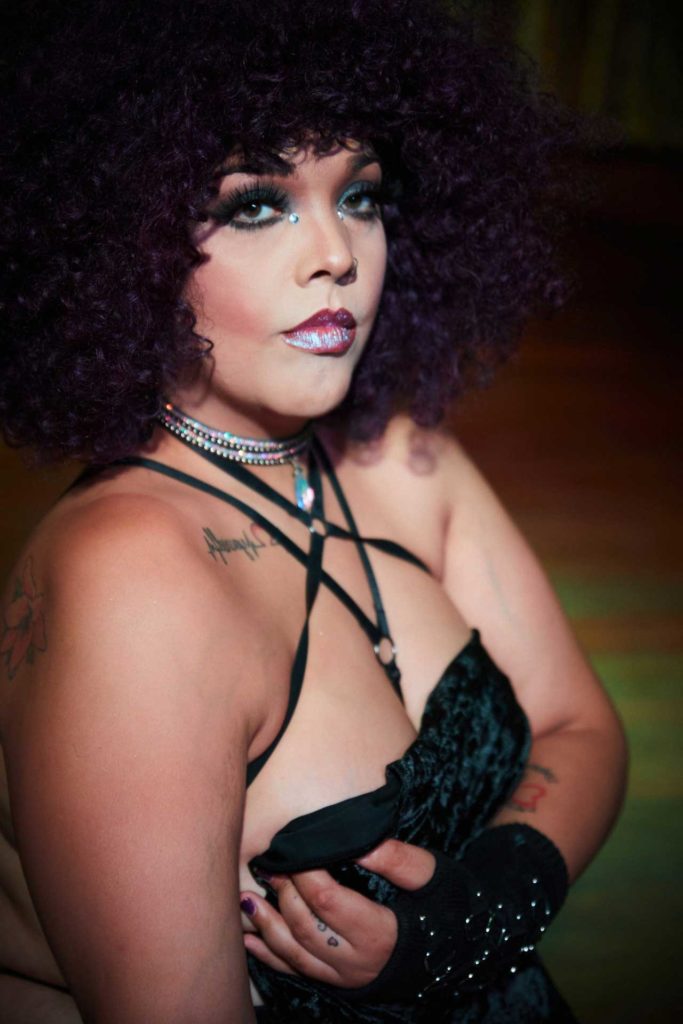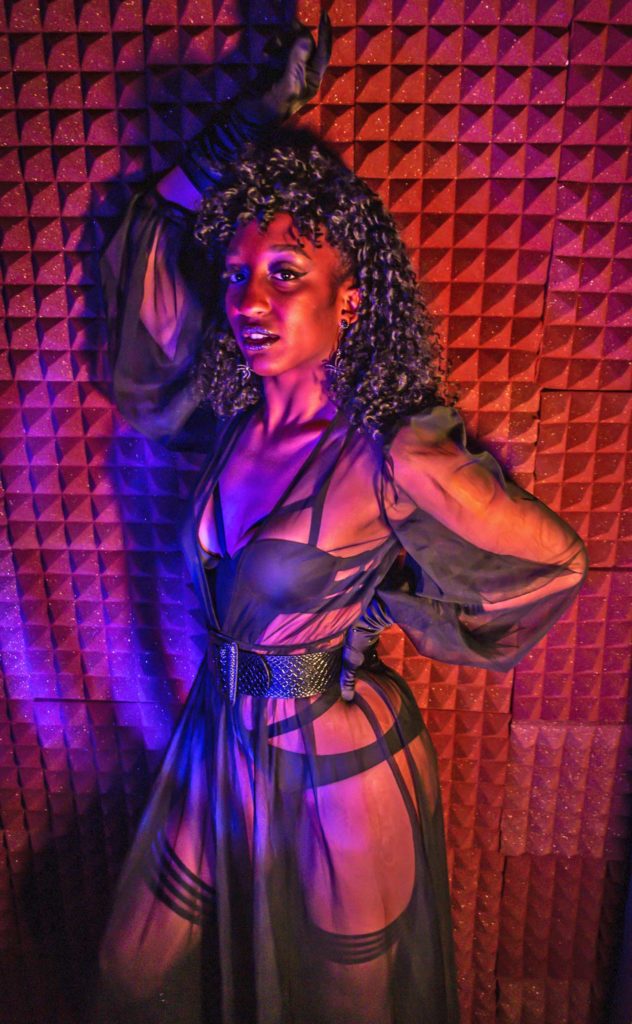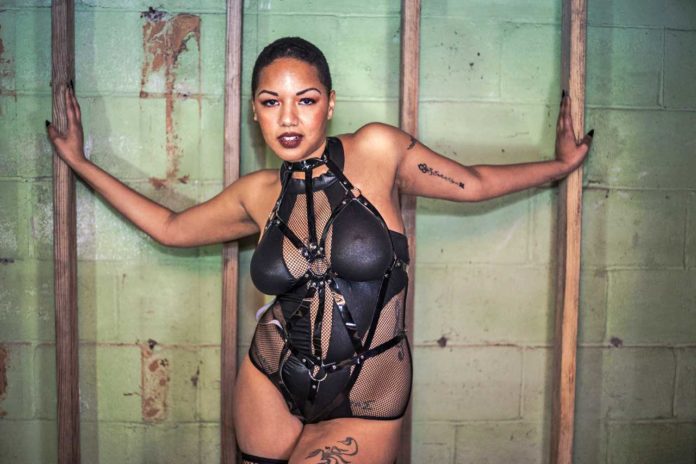To raise funds for Black Lives Matter Philly, local drag and burlesque artists have organized a virtual show featuring all performers of color. On Friday, July 24, 12 artists of color, many of whom are queer, will bring their talents to the virtual stage. All proceeds will go to Black Lives Matter Philly.

The lineup features Icon Ebony-Fierce, Caresse Deville, Deej Nutz, Selene Rose, Mia Bombshell, VinChelle, Rita Brujeria, Mxtress Lilith, Foxworth Vorn and Harley Honey. Poet and sex educator Jennifer Eden will emcee the event, and burlesque vet, educator and producer Jeez Loueez, who is ranked the number one burlesque artist in the world, will guest-headline the show.
The show was cast by Caresse Deville and produced by HoneyTree EvilEye, and many other people lent helping hands, including folks from the Philadelphia Burlesque Academy and Franky Bradley’s, who provided their stage for the acts to film on.
“With everything going on currently, it’s important to show a lot more diversity when it comes to performances and shows,” said Miayanna Brooks, a trans drag artist of color who goes by the stage name Mia Bombshell. “There are a number of very talented performers of color who don’t necessarily get featured in the city. I think it’s important, along with the Black Lives Matter movement, that not only are we fighting for equality and for our lives, but for our livelihoods.”
Though Brooks primarily performs drag, she said that she plans to perform a song that she translated into burlesque “so you’ll see a little bit of both in my personal performance.”
This fundraiser is the result of a virtual town hall led by VinChelle and Icon Ebony-Fierce in which Philadelphia drag and burlesque performers of color spoke with white producers and bar owners about getting passed over for gigs, pay disparities, cultural appropriation and harassment. HoneyTree was among the white show producers who attended the forum. Ultimately, the producers agreed that their shows would be cast with at least 50% performers of color and they would treat Black and Brown artists fairly.
“It was important that [this] show not only feature all performers of color, but I realized, because I am white, to be a white person and to cast the show would also still be exerting a degree of control and power that I think would be inappropriate,” HoneyTree said.

The show will be diverse in terms of performance genre. Mxtress Lilith has a diverse skill set, including hooping, Caresse Deville also has a background in flow arts and there will be at least one sung performance, HoneyTree said. All of the show’s performers will be compensated above industry standard pay, she added.
Nonbinary burlesque artist Deej Nutz has been performing since late 2018, and plans to create an act that encapsulates Black joy, including the Leon Bridges song “Bad Bad News.” They described the essence of the song as trying to show oneself to the world without being held back.
“A lot of times [there’s] emphasis on struggle and having to overcome adversity, which is definitely a key part of what Black people have had to do our entire existence, but we also experience happiness and joy.”
HoneyTree told PGN that the art form of burlesque began among marginalized communities, especially queer and gender nonconforming folks. “Burlesque has always been an outsider, working class, subversive art form,” she said. “It was full of people who were queer and gender nonconforming even before we had those words, but it also has a long legacy of really privileging thin, white, conventionally attractive women.”
She also mentioned how performer and activist Josephine Baker forged a career as a dancer and burlesquer in France after finding little success in the U.S. “[Burlesque] has got an interesting mixture of stories, it’s not one single narrative,” HoneyTree said. “We’ve had an easy time finding one single narrative of very thin, white girls in this art form, but that’s really not the whole story.”
According to the 2015 PBS story “How African American performers are ‘revolutionizing’ burlesque,” African Americans have been part of the “vaudeville, minstrel and burlesque traditions” since the mid 19th-century, when the artform essentially began. However, African American performers have had a history of being marginalized in the industry. When burlesque became popular in the U.S., Black artists and white artists were segregated by act, mirroring the segregation of the country. When American society became more racially assimilated, white burlesque troupes would hire one or two Black performers, but they would position them such that they perpetuated racist stereotypes.
Philadelphia is not the only U.S. city in which Black and Brown drag and burlesque artists need more visibility in the performance scene. Jeez Loueez, a native of St. Louis and current resident of New Orleans, started the Black burlesque festival Jeezy’s Juke Joint: A Black, Burly-Q Revue “to create a space for Black performers to be seen and celebrated.”
In 2007, Chicava HoneyChild created Brown Girls Burlesque in New York City for that same reason. Similar, Black-run burlesque groups have sprung up.
“Going forward, there just needs to be more Black-dominant shows,” Deej Nutz said. “This is Philadelphia. There are so many Black performers, either burlesque or drag, that can be booked in shows. Now that this town hall has happened and the fire is really under these white producers, hopefully some genuine change will actually come of it.” Tickets for this pay-what-you-want fundraiser can be purchased through Eventbrite.
